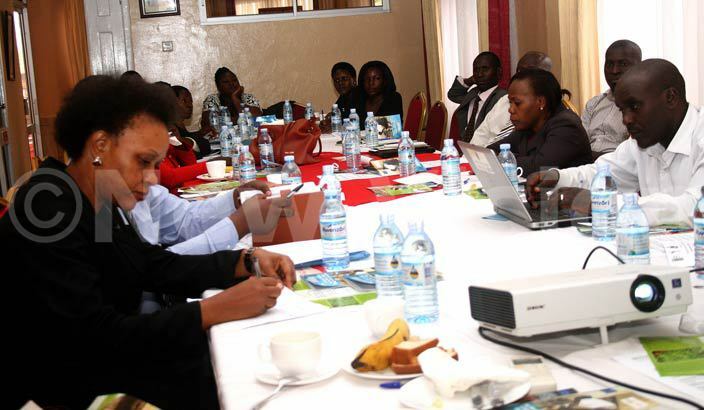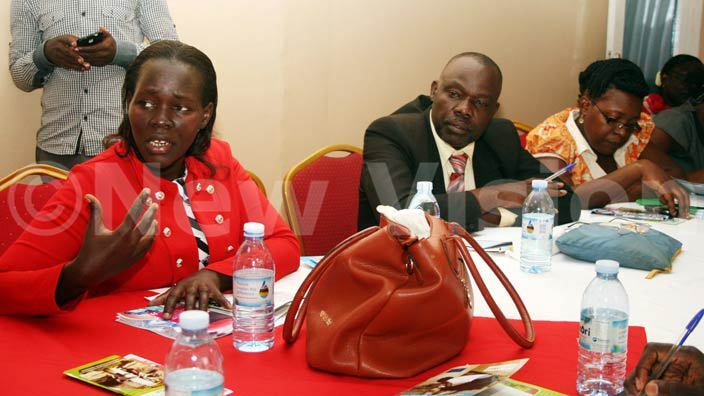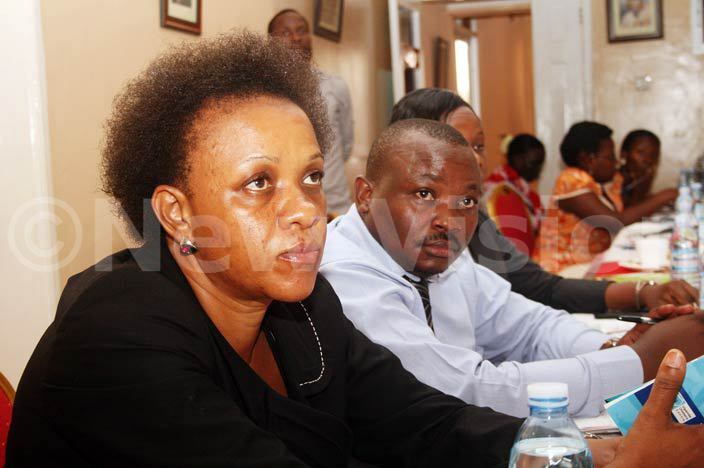Child rights activists push for domestic workers' ratification
May 04, 2016
According to Fred Kakembo, board member IDAY-International, there is need to speed up coordination among stakeholders even if government ratifies the domestic workers convention

The government has been advised to ratify the International Labour Organization (ILO) domestic workers convention 189 to reduce the prevalence of child domestic workers.
The government was also told to help enforce prevailing laws to speed up the judicial process of prosecuting the perpetrators of child domestic workers.
This call was made Wednesday at Eureka hotel, Ntinda by Non-Governmental Organizations (NGOs) including; IDAY-Uganda Chapter, Uganda Council for Children (UCC), African Network for the Prevention and Protection against Child Abuse and Neglect (ANPPCAN).
 Some of the stakeholders who attended the advocacy on child domestic workers at Eureka hotel, Ntinda. Photo by Oyet Okwera
Some of the stakeholders who attended the advocacy on child domestic workers at Eureka hotel, Ntinda. Photo by Oyet Okwera
According to Martin Kiiza, General Secretary National Council for Children,(NCC), there is need to further strengthen collective responsibility and involve all the stakeholders in curbing child domestic workers.
"We need to take action as stakeholders and show all Ugandans that we are serious in the struggle to reduce child domestic workers. Let us all work as one unit and share information to better position ourselves in fighting against child domestic workers," said Kiiza.
 (extreme right) Superitendent of Police Irene Adibaa makes a point during the advocacy meeting on child domestic workers held at Eureka hotel in Ntinda. Photo by Oyet Okwera
(extreme right) Superitendent of Police Irene Adibaa makes a point during the advocacy meeting on child domestic workers held at Eureka hotel in Ntinda. Photo by Oyet Okwera
He agreed that the government's ratification of domestic workers convention will help reduce the prevalence of child domestic workers.
Kiiza was giving a Key Note speech during an advocacy meeting on child domestic workers with Civil Society (CSOs) and (NGOs) in Ntinda.
The advocacy meeting attracted representatives from Police, Uganda People's Defence Forces (UPDF), domestic workers representatives, several line ministries like; ministry of; health, education, gender among others.
According to Fred Kakembo, board member IDAY-International, there is need to speed up coordination among stakeholders even if government ratifies the domestic workers convention.
This domestic workers' convention C189 is a convention that encourages decent work for all domestic workers in the world.
Kakembo observed that to curb child domestic workers, all stakeholders should share necessary data and information to guide the process.
 Penlope Tumuhairwe, representative from Uganda people's Defence Forces (UPDF) and others attend the advocacy meeting on child domestic workers held at Eureka hotel, Ntinda. Photo by Oyet Okwera
Penlope Tumuhairwe, representative from Uganda people's Defence Forces (UPDF) and others attend the advocacy meeting on child domestic workers held at Eureka hotel, Ntinda. Photo by Oyet Okwera
Assumpta Namaganda Assistant Secretary for domestic workers in Uganda noted that there are about 800,000 domestic workers in the country. Namaganda said all stakeholders should push government to ratify the convention on child domestic workers.
She urged police to avail information on child domestic workers to help stakeholders plan better on how to curb child domestic workers in the country.
Last year, European Union launched a survey and legal assessment report on child domestic workers and reports available indicate that Uganda has over 2 million child domestic workers.
Herbert Galusha, manager programme development at), African Network for the Prevention and Protection against Child Abuse and Neglect (ANPPCAN) said out of 2454 domestic workers sampled, 592 were child domestic workers representing 24%.
Galusha noted that in Uganda, there is no law that considers domestic workers as group of workers with regulations and this makes domestic workers exposed to exploitation.
"Some policies lack concrete strategies on how to deal with child domestic workers and other policies give guidelines on employment without direct reference to child domestic workers. As a country, we need to ratify the ILO convention 189 on domestic workers to better expedite the process of reducing child domestic workers," explained Galusha
